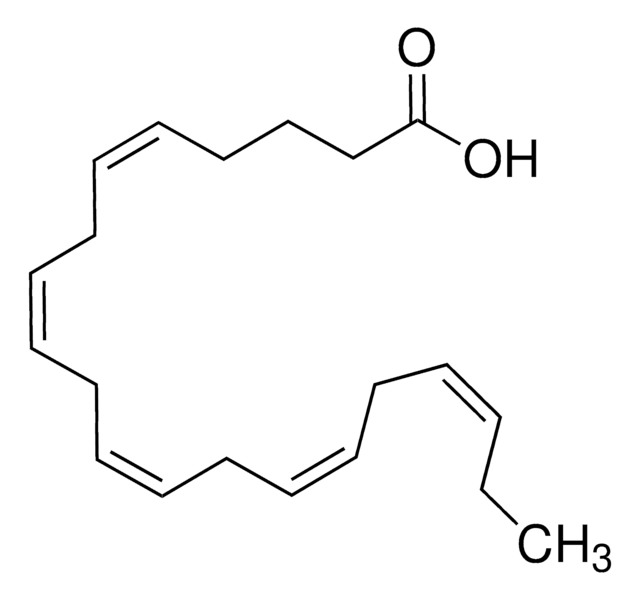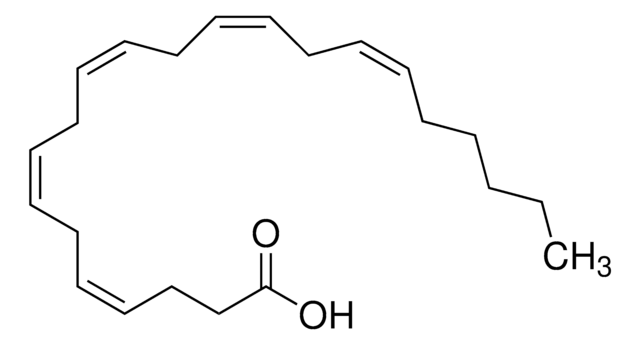53171
cis-4,7,10,13,16,19-Docosahexaenoic acid
analytical standard
Synonym(s):
DHA
About This Item
Recommended Products
grade
analytical standard
Quality Level
assay
≥98.0% (GC)
shelf life
limited shelf life, expiry date on the label
technique(s)
HPLC: suitable
gas chromatography (GC): suitable
format
neat
functional group
carboxylic acid
storage temp.
−20°C
SMILES string
CC/C=C\C/C=C\C/C=C\C/C=C\C/C=C\C/C=C\CCC(O)=O
InChI
1S/C22H32O2/c1-2-3-4-5-6-7-8-9-10-11-12-13-14-15-16-17-18-19-20-21-22(23)24/h3-4,6-7,9-10,12-13,15-16,18-19H,2,5,8,11,14,17,20-21H2,1H3,(H,23,24)/b4-3-,7-6-,10-9-,13-12-,16-15-,19-18-
InChI key
MBMBGCFOFBJSGT-KUBAVDMBSA-N
Looking for similar products? Visit Product Comparison Guide
Application
Storage Class
10 - Combustible liquids
wgk_germany
WGK 3
flash_point_f
143.6 °F - closed cup
flash_point_c
62 °C - closed cup
Choose from one of the most recent versions:
Certificates of Analysis (COA)
Sorry, we don't have COAs for this product available online at this time.
If you need assistance, please contact Customer Support.
Already Own This Product?
Find documentation for the products that you have recently purchased in the Document Library.
Customers Also Viewed
Our team of scientists has experience in all areas of research including Life Science, Material Science, Chemical Synthesis, Chromatography, Analytical and many others.
Contact Technical Service






